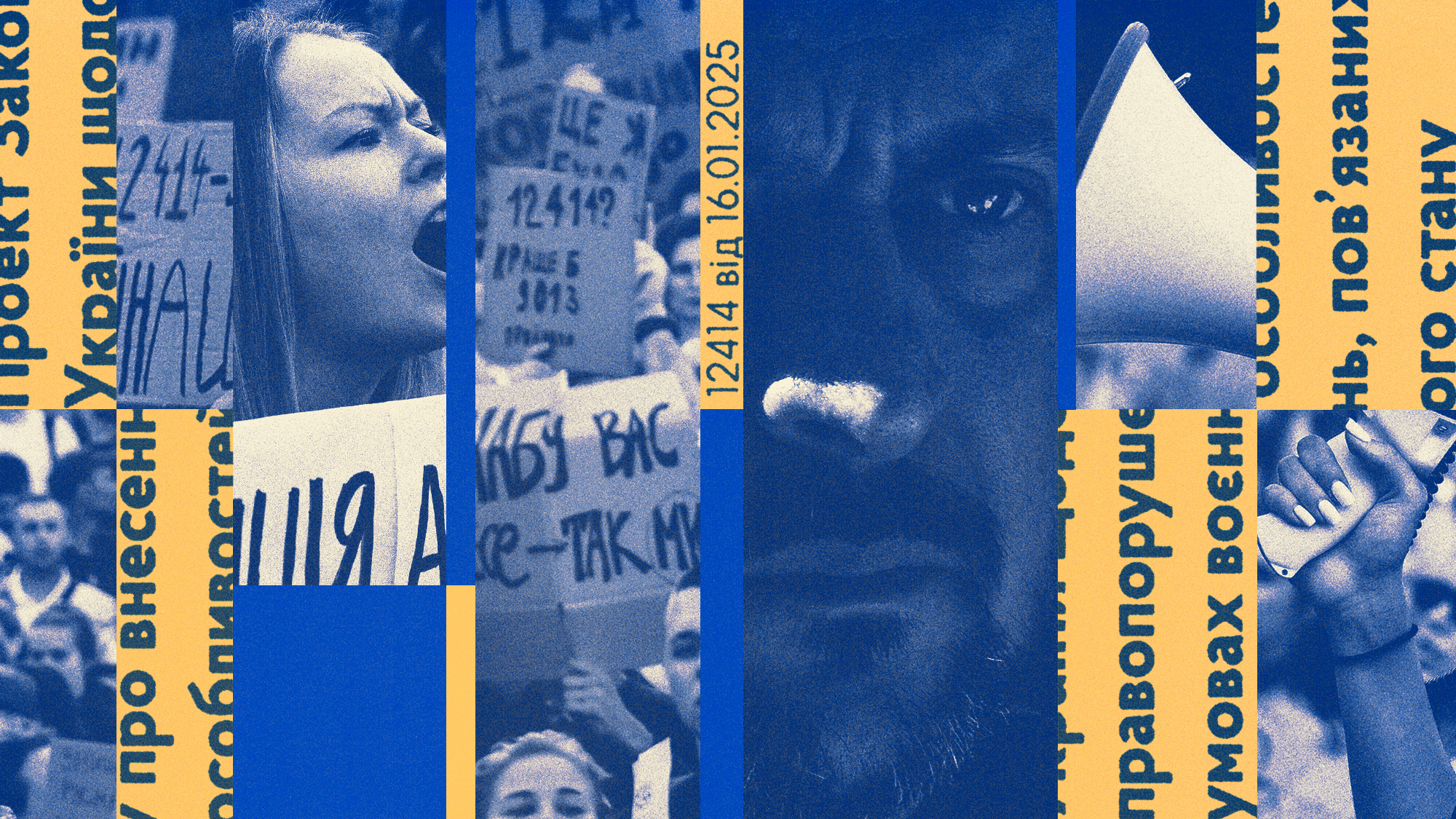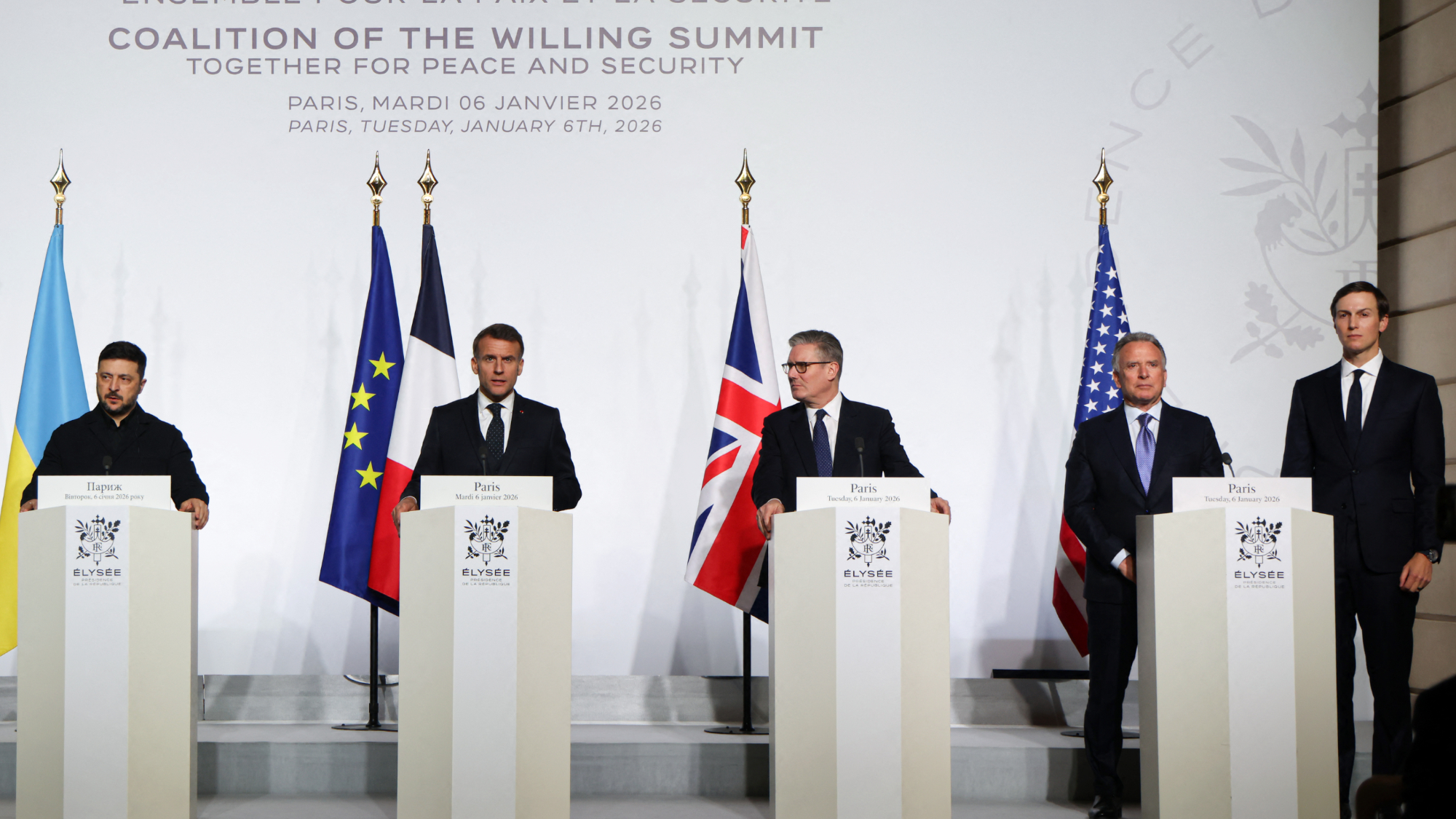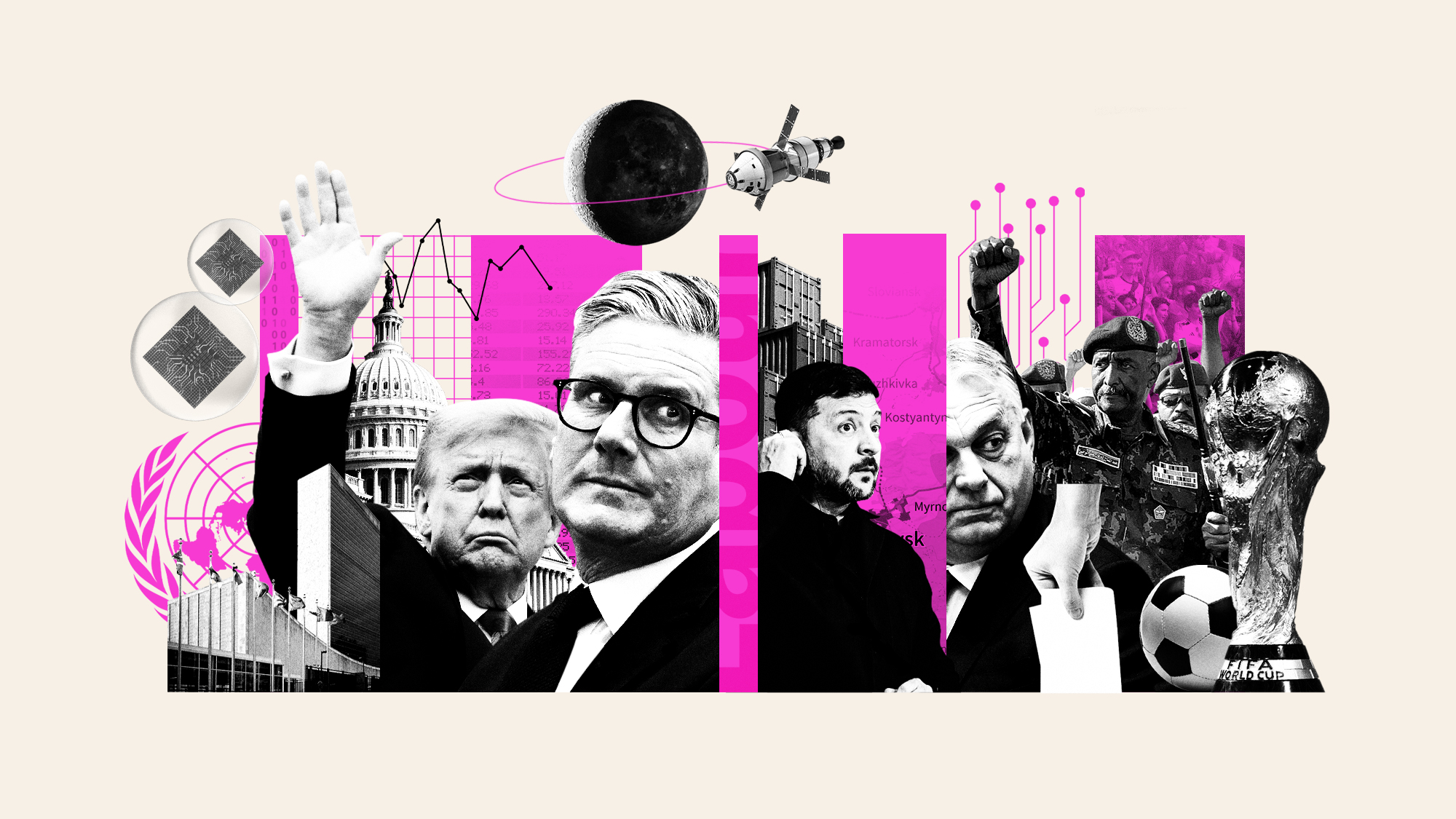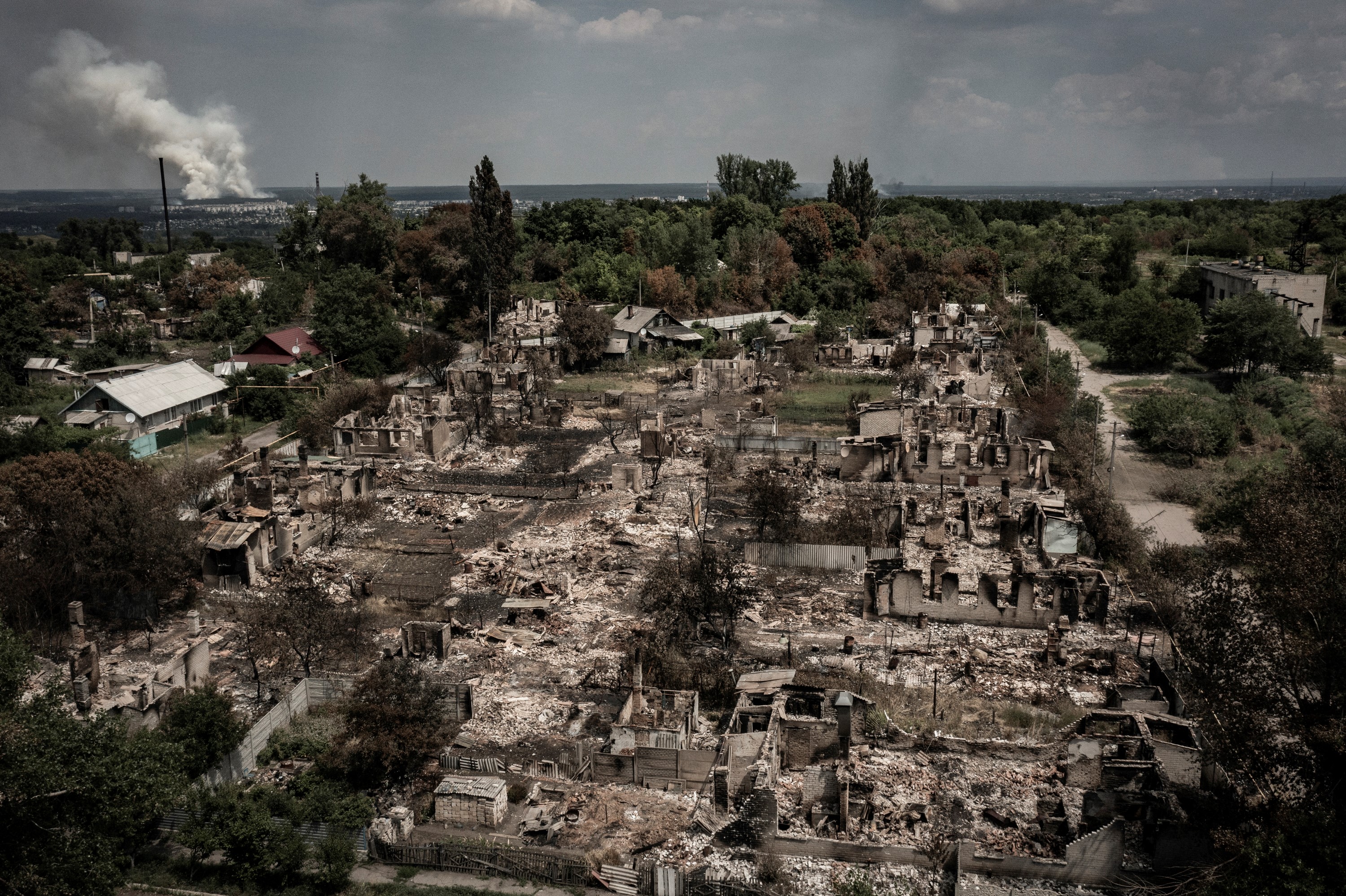Why are Ukraine's anti-corruption issues roaring back into focus now?
A new bill curbing anti-corruption bodies prompted Ukraine's first mass protests against President Volodymyr Zelenskyy in years. Where are the roots of this domestic unrest, and what could it mean for Ukraine's future?


A free daily email with the biggest news stories of the day – and the best features from TheWeek.com
You are now subscribed
Your newsletter sign-up was successful
When first-term President Donald Trump leaned on Ukrainian President Volodymyr Zelenskyy to provide damaging political material on 2020 electoral rival Joe Biden, his ask was based in part on Ukraine's reputation for a historically questionable commitment to anti-corruption efforts. Fast forward to today, and a very different Ukraine is once again grappling with the specter of crippling national corruption thanks to a controversial law hurriedly signed by Zelenskyy earlier this week. Critics contend it will weaken the country's independent National Anti-Corruption Bureau (NABU) and the Specialized Anti-Corruption Prosecutor's Office (SAPO) by placing them under the auspices of Ukraine's presidentially appointed prosecutor general.
After days of mass demonstrations in opposition to the new law, Zelenskyy (facing significant domestic policy protests for the first time) appeared to relent. This morning, the Ukrainian president announced on X that he'd approved a new, still ambiguous draft bill which "upholds the independence of NABU and SAPO."
What did the commentators say?
Demonstrations in Kyiv, as well as across Lviv, Dnipro and Odesa, are Ukraine's "biggest anti-government protests" since Russia began its Ukrainian invasion in 2022, said the BBC. While Zelenskyy initially sought to justify the law as a necessary boost for the "efficiency of Ukraine's anti-corruption infrastructure," critics argue that the bill is "at odds" with the country's pro-democracy efforts. For those critics, the stakes in the controversy are clear, said The Nation. Can a country "fighting for survival" also defend the "hard‑won democratic reforms" achieved in its 2014 anti-Russian revolution?
The Week
Escape your echo chamber. Get the facts behind the news, plus analysis from multiple perspectives.

Sign up for The Week's Free Newsletters
From our morning news briefing to a weekly Good News Newsletter, get the best of The Week delivered directly to your inbox.
From our morning news briefing to a weekly Good News Newsletter, get the best of The Week delivered directly to your inbox.
The "unusual speed" with which Ukraine's parliament passed its anti-corruption reforms follows "mounting warnings" from activists who've cautioned against an "escalating crackdown on anti-corruption bodies and NGOs" lately, said The Kyiv Independent. Just one day before Zelenskyy signed the legislation, various Ukrainian security agencies conducted "sweeping searches of NABU and SAPO" in what officials claimed was targeting "suspected Russian infiltration and administrative misconduct." Earlier this month, a top anti-corruption activist was arrested and charged with fraud and evading military service, which defenders said was "political retribution for exposing corrupt officials," Reuters said.
Anti-corruption critics claim Zelenskyy has "overstepped his authority under the martial law imposed since the Russian invasion," with the initial law adjusting the NABU and SAPO's independence marking the "latest in a string of steps he has taken to consolidate his power, said The New York Times.
What next?
By enacting the new law's intended reforms, Zelenskyy risked "endangering" Ukraine's "bid to join the European Union," for which a "crackdown on internal corruption" is a "requirement," said Fox News. Some in Ukraine wonder if the new law and ensuing protests have afforded Russia a "powerful propaganda tool" that could be used not only to further divide Ukraine but also damage its "support from the West at a crucial moment in the war," said NBC News. Western officials are "alarmed" that Ukraine might be "backsliding" on its "endemic graft problem."
By submitting his alternate bill Thursday morning, Zelenskyy hoped to "defuse tensions" with a revised law that "underlines" that the prosecutor general's office "cannot give orders to anti-graft agencies or interfere in their work," The Associated Press said. It's "not immediately clear" when Zelenskyy's new bill will get a parliamentary vote, with protests "likely to continue until the law is passed." Still, representatives from NABU hailed the revised legislation as restoring "all procedural powers and guarantees of independence" to it, said the special prosecutors' office in a post on Telegram.
A free daily email with the biggest news stories of the day – and the best features from TheWeek.com
Nevertheless, should state organs like NABU ultimately lose their independence as the initial law proposed, "there will still be anti-corruption activity," said investigative journalist Yuriy Nikolov to The Kyiv Independent. "What will remain" is "anti-corruption activity against low-level people."
Rafi Schwartz has worked as a politics writer at The Week since 2022, where he covers elections, Congress and the White House. He was previously a contributing writer with Mic focusing largely on politics, a senior writer with Splinter News, a staff writer for Fusion's news lab, and the managing editor of Heeb Magazine, a Jewish life and culture publication. Rafi's work has appeared in Rolling Stone, GOOD and The Forward, among others.
-
 How the FCC’s ‘equal time’ rule works
How the FCC’s ‘equal time’ rule worksIn the Spotlight The law is at the heart of the Colbert-CBS conflict
-
 What is the endgame in the DHS shutdown?
What is the endgame in the DHS shutdown?Today’s Big Question Democrats want to rein in ICE’s immigration crackdown
-
 ‘Poor time management isn’t just an inconvenience’
‘Poor time management isn’t just an inconvenience’Instant Opinion Opinion, comment and editorials of the day
-
 Will increasing tensions with Iran boil over into war?
Will increasing tensions with Iran boil over into war?Today’s Big Question President Donald Trump has recently been threatening the country
-
 Putin’s shadow war
Putin’s shadow warFeature The Kremlin is waging a campaign of sabotage and subversion against Ukraine’s allies in the West
-
 Ukraine, US and Russia: do rare trilateral talks mean peace is possible?
Ukraine, US and Russia: do rare trilateral talks mean peace is possible?Rush to meet signals potential agreement but scepticism of Russian motives remain
-
 The rise of the spymaster: a ‘tectonic shift’ in Ukraine’s politics
The rise of the spymaster: a ‘tectonic shift’ in Ukraine’s politicsIn the Spotlight President Zelenskyy’s new chief of staff, former head of military intelligence Kyrylo Budanov, is widely viewed as a potential successor
-
 Trump’s Greenland threats overshadow Ukraine talks
Trump’s Greenland threats overshadow Ukraine talksSpeed Read The Danish prime minister said Trump’s threats should be taken seriously
-
 What will happen in 2026? Predictions and events
What will happen in 2026? Predictions and eventsIn Depth The new year could bring peace in Ukraine or war in Venezuela, as Donald Trump prepares to host a highly politicised World Cup and Nasa returns to the Moon
-
 All roads to Ukraine-Russia peace run through the Donbas
All roads to Ukraine-Russia peace run through the DonbasIN THE SPOTLIGHT Volodymyr Zelenskyy is floating a major concession on one of the thorniest issues in the complex negotiations between Ukraine and Russia
-
 US offers Ukraine NATO-like security pact, with caveats
US offers Ukraine NATO-like security pact, with caveatsSpeed Read The Trump administration has offered Ukraine security guarantees similar to those it would receive from NATO
